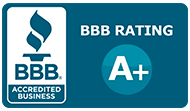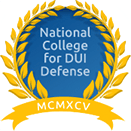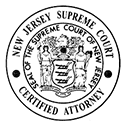The Former Prosecutors At Our Firm Are Ready To Defend Your Child’s Juvenile Criminal Offense
The creation of a separate system to handle criminal offenses committed by children dates back to the early part of the 20th century. The emphasis of the juvenile justice system has always been on rehabilitation rather than punishment. However, at any given time, there are almost 500 children locked up in secure facilities in New Jersey and the rate at which children recommit juvenile criminal offenses is high. One report issued by the state reveals that 55.3 percent of young people released from custody or probation supervision return to court within one year on new charges.
If your child commits a violation of the criminal laws, officers from the Middlesex Borough Police Department can begin a juvenile delinquency proceeding in the superior court. Your child has the right to be represented by a skilled and experienced juvenile defense attorney. At the Law Offices of Jonathan F. Marshall, our defense team includes former municipal and county prosecutors and seasoned criminal defense and juvenile lawyers who have practiced in the Family Division of the Middlesex Superior Court for decades. This experience gives our Middlesex County juvenile attorneys the knowledge and skill to provide quality legal representation in juvenile proceedings. When your child needs legal representation, we have a lawyer available 24 hours a day and seven days a week to speak to you in a free consultation. Simply call us now at (732) 562-0308.
Juvenile Offenses in Middlesex Borough
A juvenile in New Jersey is anyone under 18 years of age when the offense is alleged to have occurred. Violations of the criminal laws committed by a juvenile are handled differently than they are for adult offenders. For example, instead of being heard in Middlesex Borough Municipal Court or the Criminal Division of the Middlesex Superior Court, the case is heard by a judge in the Family Division of Superior Court.
There are other differences between proceedings in juvenile cases and adult criminal cases, such as:
- Juveniles do not have the same right to a trial by jury as do adults. Juvenile delinquency cases are heard by a judge.
- Juvenile proceedings are confidential and closed to the public.
- Juveniles are not arrested. The term “taken into custody” is used.
- Juveniles are not proven guilty of the charges. Delinquency proceedings in which the allegations are proven end in an adjudication of delinquency.
- Legal representation is mandatory in juvenile proceedings.
There are several criminal offenses that appear more frequently than others as the basis for juvenile delinquency proceedings, including:
- Possession of drugs
- Distribution of CDS (e.g. marijuana, Xanax, MDMA, LSD, etc.)
- Shoplifting
- Criminal mischief
- Robbery
- Harassment
- Disorderly conduct
- Aggravated assault
- Traffic violations
- Burglary
- Simple assault
- Terroristic threats
Juveniles 14 years of age and older may have their cases waived from the juvenile court and transferred to the criminal court to be tried as an adult if they are accused of committing a violent offense. Among the violent crimes for which a prosecutor may seek waiver of the juvenile court’s jurisdiction are the following:
- Murder
- Robbery as a crime of the first degree
- Aggravated sexual assault
- Aggravated assault as a crime of the second degree
- Kidnapping
- Aggravated arson
The application to transfer the case to the adult criminal court is made at the request of the prosecutor. Waiver requires proof that probable cause exists to believe the juvenile committed the offense. In some cases, a skilled juvenile defense attorney can challenge a waiver application by demonstrating there is a probability of rehabilitation if the child remains in the juvenile court.
Disposition of Juvenile Cases in Middlesex Borough
The majority of juvenile cases are resolved through the Juvenile Conference Committee. This is a form of diversion program to get the case out of the court system and is in keeping with the rehabilitative rather than punitive nature of the juvenile justice system. A panel appoint by the judge in superior court family division hears from all of the parties, including the juvenile and the victim, and recommends a method of resolving the case to the judge.
When a juvenile proceeding results in an adjudication of delinquency by a family division judge, the law offers many options for the court to impose at disposition, which is the juvenile court equivalent of sentencing in the adult court. Among the options available to a judge are the following:
- Diversion
- Probation
- Restitution
- Mental health or substance abuse treatment
- Academic or vocational programs
- Confinement to a secure state-run facility
- Release to parents
A skilled juvenile defense lawyer can influence the disposition of a case by advocating for a particular disposition that is favorable for the child.
Middlesex Borough Juvenile Defense Lawyer Makes a Difference
When your child is the subject of juvenile proceedings having a skilled and knowledgeable defense attorney from the Law Offices of Jonathan F. Marshall makes a difference. Our understanding of the law and the juvenile court procedures gives our lawyers the tools to secure the very best result in your son or daughter’s criminal case. Contact our Piscataway Office now by calling (732) 562-0308 to speak to one of our Middlesex Borough juvenile defense attorneys in a free consultation. A lawyer is standing by 24/7 to take your call.













